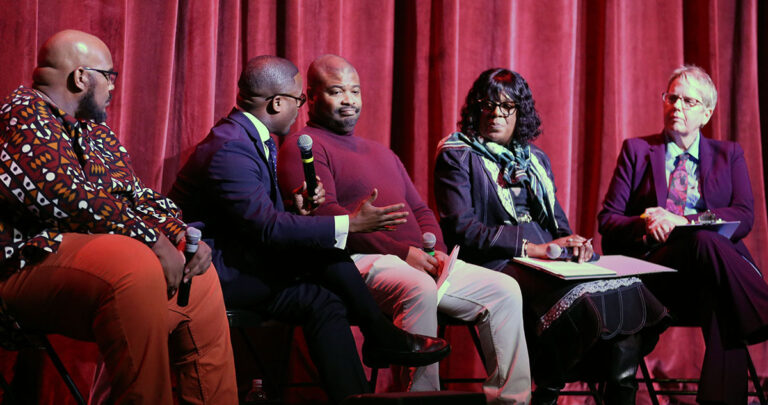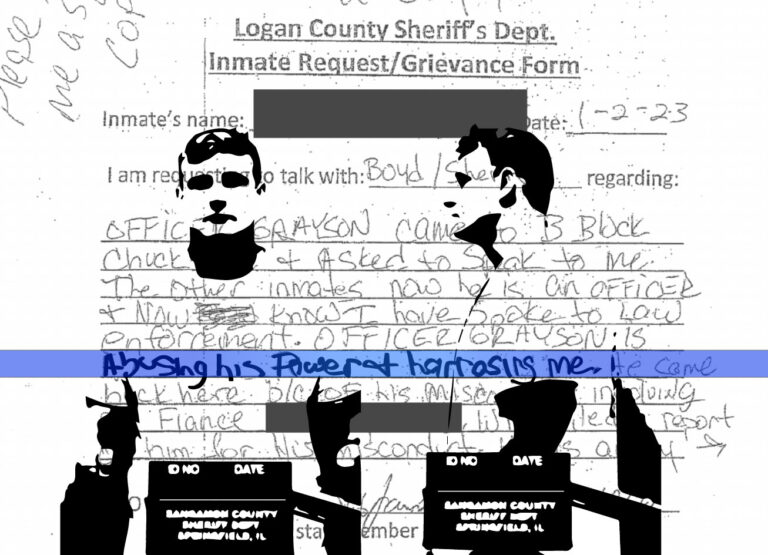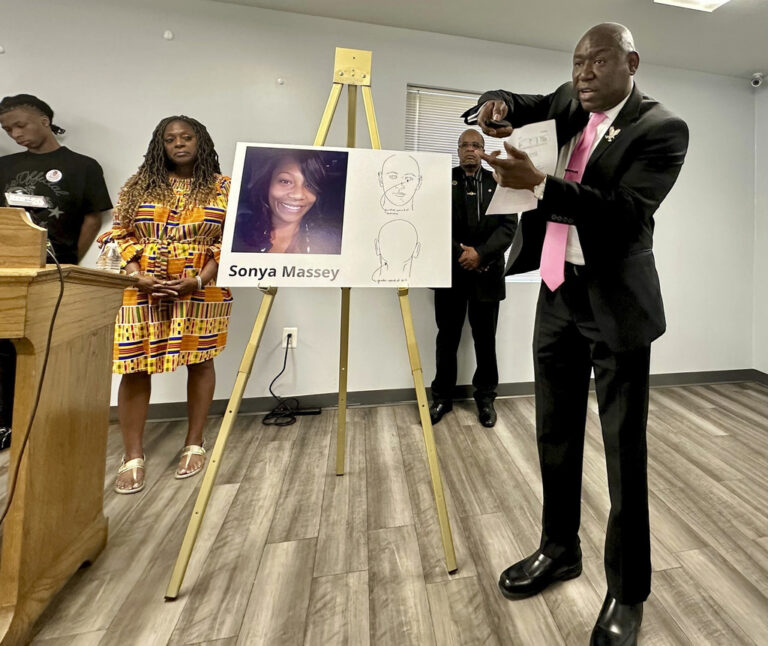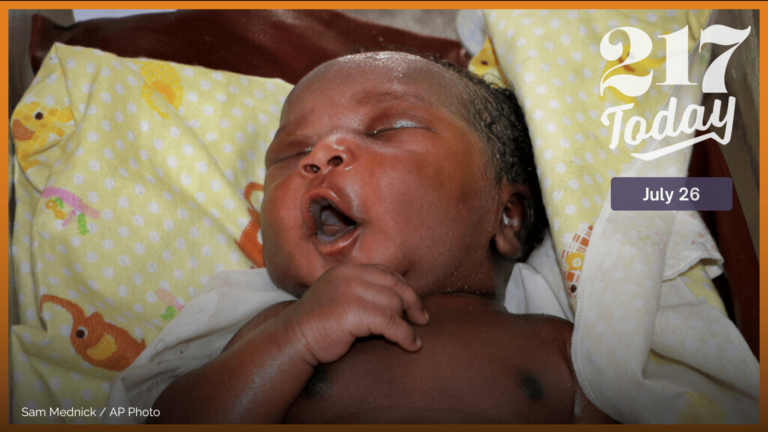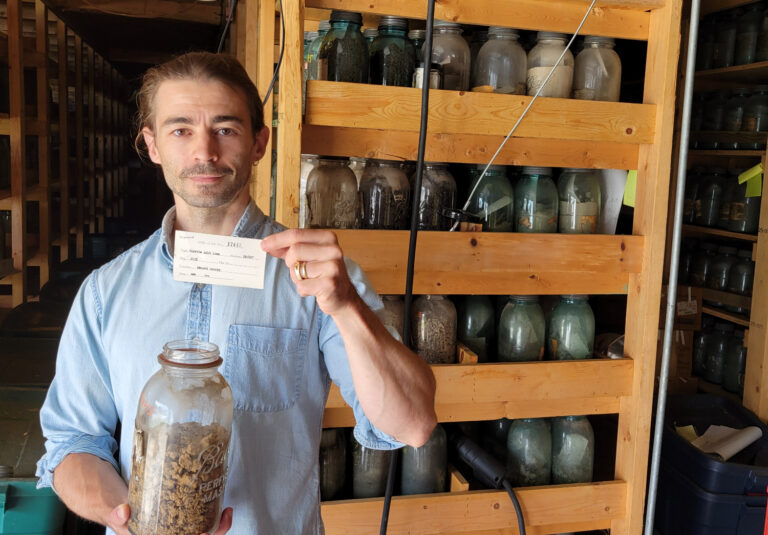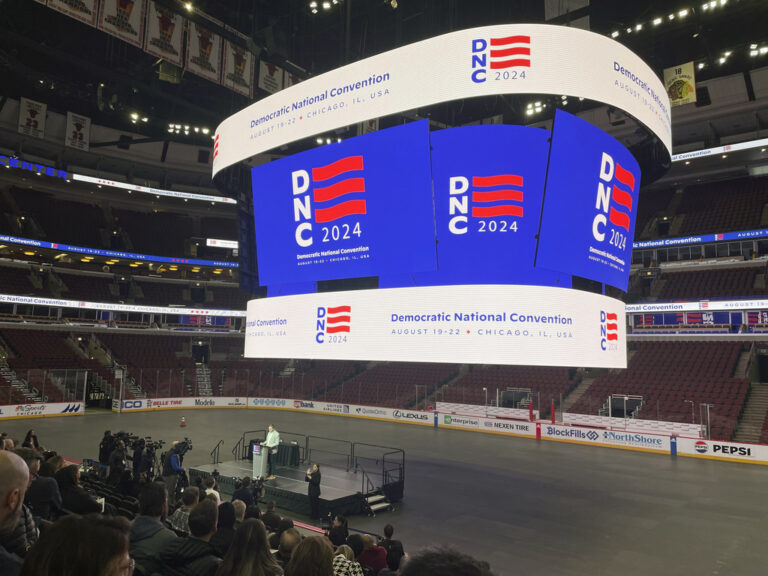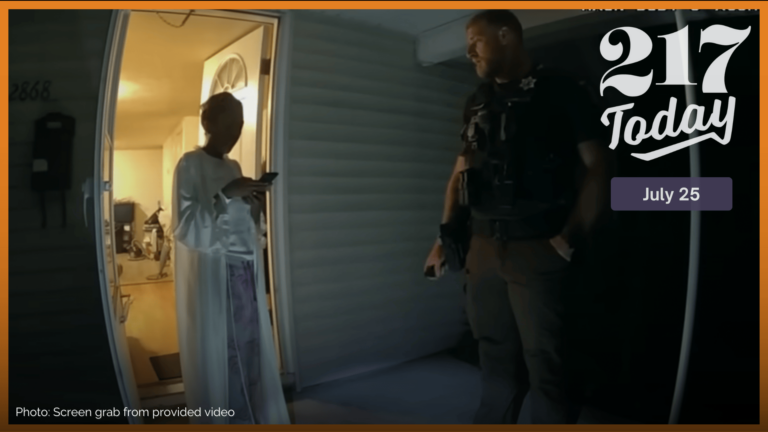What is the Black church?
According to Henry Louis Gates Jr., executive producer of The Black Church: This Is Our Story, This Is Our Song, “The Black church is the birthplace and the nurturing ground for the major social, cultural, educational, economic and political institutions that define Black America.”
What is the Black church in central Illinois?
An audience of more than 200 people came to The Virginia Theatre in Champaign to explore this question with a panel of Black church leaders and scholars of Black religions on Friday, December 15. The panel and audience watched the episode of Dr. Gates’ “The Black Church” that focuses on Reconstruction, Jim Crow laws and the rise of Black women in formal leadership roles in the Black church. This event was a presentation of Illinois Soul.

This story presents a summary of the major points of discussion. Audio transcripts of the entire discussion and audience Q & A are also provided here.
Entire panel discussion
Audience Q & A
WHAT IS BLACK RELIGION?
Professor Leonard McKinnis, scholar of African American religions in the Department of African American Studies and the Department of Religion at UIUC:
If a core of what gave birth to this institution, was the audacity and the courage of enslaved Africans who themselves rejected what I’m going to call a very violent theology. In other words, the enslavers found a way as the father of Black liberation theology, James Cone would say, to reconcile their understanding of Jesus and Black bodies hanging from trees. That’s a hell of a reconciliation. One weaponizes theology toward pursuing a particular kind of end. In this case, we’re talking about a world that was in bed with a very particular notion of capitalism, a very particular notion of what the human was, who could think, who had the intellectual capacity to think about things of God and thus went forth. So, at its earliest stage of the American experiment in democracy already exists a theology with a very violent God, a very violent God, that was complicit in the slave holding of kidnapped Africans. And so, in many ways, as these enslaved Africans are imagining their idea of God, and they are singing their songs, or what we call it, the brush harbor, the invisible place of worship, on the slave plantations, they are already thinking about a new theological venture. They are talking about the God of Exodus. And by the way, the God of Exodus was the God that was hidden from them. They are talking about the God of Luke, about a Jesus of liberation.
What I am curious about is the religious imagination of Black folk, that includes Christian faith, but also includes groups that have oftentimes been at odds with Christian faith been at odds with civil society like the Nation of Islam. The Moorish Science Temple. But what connects all of these groups – while they have different routes of thinking about the divine and their relationship to the divine, what connects all of these groups is that at some point in their history, they were wrestling with what it meant to be strangers in a place called home.
Reverend Terrance Thomas of Bethel AME Church in Champaign, the oldest Black church in Champaign, County:
I would argue though, that in the sense that the institutions you are talking about have been co-opted for at least for the past 50 years by prosperity gospel, it’s been co-opted by a gospel of White supremacy. And so, what you’re talking about has long been drowned out in our John Haggy Bible studies that’s in our Black churches. And Charles Stanley, right? So, in the church, were not talking about James Cone. We’re reciting White evangelical theology that is violent that supports empire that puts over and against.
Professor Leonard McKinnis
Folks love: “I Have a Dream,” but for me, one of his (Rev. Dr. Martin Luther King, Jr.) most significant speeches or sermons was called “Why Wait?” And the subtitle was “The Myth of Time.” King had this philosophy of the world where he said, he was talking to Alabama, he said before he came to Alabama, the governor wrote me and the legislators wrote me and said “The good Negros here in the south don’t want your radical message. He said stay where you are and do that stuff in those towns. But then King said, “We have this conception that if we just wait, things gonna work out. If we just take our time and play Kumbaya and pretend like everything is okay, time will fix itself. But King was a revolutionary. He was a radical. King did not believe that time will fix anything.
Dr. Jeff Trask, treasurer for the Dr. Rev. Martin Luther King Jr. Advocacy for Justice Committee, a predominately black organization that provides scholarships to students of color in Champaign County.
African American church leaders met with President Lincoln and then later with the General Sherman. In both cases, they were sought after to get advice as to how to move forward based on emancipation and what the next steps were for African Americans. You had this strong Black leadership and not only do you have to strong Black leadership, but they were able to go into this environment and not be intimidated and not hold back in terms of what they wanted. But to be intentional and direct about what they you sought for African Americans.
WHAT IS THE SPIRITUAL AND POLITICAL GROUNDING FOR THE CALL FOR REPARATIONS?
Dr. Jeff Trask
On a spiritual level, the idea of reparations has been around since the early Biblical days. In Genesis chapter 15, verses 13 and 14, it says “Then the Lord said to him, (this is Moses), know for certain that for 400 years, your descendants will be strangers and the country not their own, and that they will be enslaved and mistreated there. But I will punish the nation that they serve as slaves, and afterwards, they will come out with great possessions.”
And when it comes to this whole idea of reparations for our communities now, it is a spiritual thing. When I talk to people just that this is not just a political question. I know it has a lot of, you know, hot potato type of notion to the word reparations. But the reality is that it’s a spiritual matter. Prophets mentioned the idea of being one body, right, and what happens when one part of your body is hurting? You need to heal that one part of the body, so your whole body benefits. And so, reparations is healing that part of the body that’s hurt. And it’s really fascinating when we think about this idea of reparations being just political, when reality is that God wants us to all be whole.
Rev. Thomas
Reparations is a critical part of forgiveness and repentance. Jesus said, “When you repair when you want to make right with your bother.” We aren’t required to forgive or any of that until repentance and repairs are done. So, it’s a spiritual thing. But it’s an honest thing. And I want to lift up why this work is important. If you’ve ever read the 1619 project, if you ever read Up From Slavery, if you’ve read any of these things, not only was wealth taken from us during enslavement, right? Not only was wealth taken from us post reconstruction, but even in the 1920s when they went around burning down our towns, our houses, our churches, steal the land. Then they became millionaires off of that, right? And so, while we’re locked into generational poverty and cycles of harm, they’ve been able to build an empire. What’s often said by some Black folks, and especially a lot of White folks, is: “That happened in the past. We can’t fix that. We just need to forgive.” I don’t have to forgive nothing until you repair the harm and repay the debt. And that’s biblical.
Dr. Trask
That’s one quick thing I want to add two turns to the argument that this happened in the past. It doesn’t matter now. In every other way, other than the talk about reparations, this argument makes no sense. If my great grandfather was lynched before he had my grandfather, I wouldn’t exist. Right? So, history matters and past matters. We consider the United States you know, the wealthiest most powerful country in the world, right? No one really argues that: largest military, wealth beyond measure compared to the rest of the world. If you live here, you’re at a top 10% of wealth and world. Well, how did that come to be?
How did we get there? Because the United States is a relatively young country compared to the rest of the world. And so, in 1776, when this country was founded, it was brand new, it was zero on the economic list in terms of the rating scale. But by 1860, it was number two. And by about 70 short years, how did that happen? It was only second to Great Britain, who got a lot of economy from United States. Well, this thing called the cotton trade, and because of free labor, they were able to sell and deliver cotton at a cheaper price than anyone else in the world. And it was the ability for the United States to basically build their financial portfolio and become the wealthiest nation in the world. Think about that idea that Black slaves, Black laborers were the reason why this country is as powerful as it is. And as wealthy as it is. If you live in this country, you’re benefiting from that labor. And so therefore, you cannot say the past doesn’t matter, because it totally represents everything that’s going on today.
We all know the saying, you know, praise and love God, work is up to you. Right. And I do want to reiterate how important is to understand that reparations is a journey and not the destination. It took 400 years where we are now and it’s going to take who knows how long to get back to where we should have been the first place. It’s almost like you know, trying to try and lose weight you know, the weight comes on like that, but it takes forever to get it off. So why don’t we expect that it’s gonna come off as fast as we got it on? Racism is saturated in everything that we are and do in this country. We have to understand that we have to have an ongoing effort that will not stop to impact policies, to impact the legislation to impact resources and economies and there’s going to be an ongoing effort. And I think it is important to understand that this is a life journey. And we’ll never totally get there. But our role is to keep trying until we can’t try any longer.
Rev. Thomas
But I disagree with that. Jeff. We can get there. Part of the problem is we allow them this gradual emancipation, right? America loves the gradual, right? And what did they say in Brown (Brown v. Board of Education – 1954)? Schools need to be desegregated with all deliberate speed, right? We love the feet drag. Even Lincoln’s original emancipation plan is gradual emancipation that would have went to 1955. What I hear is when I look at how other ethnic groups have gotten there, it didn’t take a lifetime.
So, should we leave it up to God? I think always a part of our work is leave it up to God. But God has always empowered humanity to do the work. My favorite example of this is the feeding of the 5,000. Right? They went to Jesus and said, “Hey, man, we got to feed these people. And Jesus said, “You feed them.” So what did they do? They collected, then he performed the miracle. I’m suggesting that we have not collected we’ve not labored, we’ve not pushed America. The problem with Black Liberation movements, let me put on my Black Studies hat, is we don’t storm the castle. This reparation thing has been talked about since Reconstruction. And what happens is they throw us something they give us a Black mayor, they give us a Black alderman, they give us a Black president, right? I know y’all love Obama, but they give us a Black president. They give us these things. And we don’t storm the castle. Other ethnic groups don’t settle for less than reparations.
Dr. Trask
What my point is that what happened to African Americans overtime can never be made up for. That’s what I’m getting at. And so we just have to keep traveling towards making things better and improve things.
ARE THE CHURCHES IN THE MINISTERIAL ALLIANCE ALIGNED IN BLACK LIBERATION THEORY?
Rev. Thomas
No. The Ministerial Alliance has no Black liberation. They wouldn’t know James Cone from James Cleveland. No, they’re not aligned with Black liberation theology. And I love them. And I will tell them and I’ve said this is a big part of the reason why I didn’t run for a second term (on the Ministerial Alliance). They are grounded in White evangelical theology. They are grounded in White Jesus. They are grounded in King James. They are grounded in this type of death dealing theology that you can’t even honor a woman as your head.
There is a great book, Theron Williams, “Black Church, White Theology,” that talks about how we’ve allowed this to inculcate our spirit and it has made us stagnant in liberation in the pursuit of justice. Is the Ministerial Alliance about upholding the status quo and protecting itself and its concept of Christianity? Yes. And my Facebook is going to blow up tomorrow. So be it.
Apostle Blissit, senior pastor at Truth Pentecost Christian Center in Champaign
In 2009, a young Black man was killed: Kiwane Carrington (in Champaign). And I think that the community did a wonderful job in rallying together and peaceful protest. And Carol (Ammons) did a wonderful job getting all the pastors from various sects together. And we had a peaceful march. And we ended up at New Hope, I think, New Hope Church of God in Christ, and it was at least five to 700 people, I’ll never forget it. And that was my greatest memory of the Ministerial Alliance. And we used to stand as one and things got done, and we were in the spirit of togetherness, and a lot came out, a lot of good came out of that. And I saw that even various sects of churches and denominations, they came forth. And Carol led us and many other pastors, and I think the, for the most part, Urbana came together, but the Ministerial Alliance, you’re, right, they need much work and need to learn how to respect one another.
Professor McKinnis
The sort of reluctance of some Black churches to embrace Black liberation theology. In 2008, when then Senator Obama was running for president. He was a member at Trinity United Church of Christ in Chicago under the auspices of Jeremiah A. Wright, Jr. On Trinity’s website, it said then, and it says now. Jeremiah Wright wrote, “The Trinity of United Church of Christ is built upon the teachings of Black liberation theology, in the tradition of James Hal Cone.” That is on their website. What happened? Well, Fox News got ahold of it. And for about three weeks straight, Sean Hannity became a theologian. For about three weeks straight Sean Hannity became a theologian and held a forum on the dangers of Black Theology.
And then tried to make the case, because Barack Obama was clean, see. He was a clean candidate. They couldn’t get them on moral ethical issues, so, let’s go to his religion. Let’s go after his pastor. So, the Black church became well, a particular kind of Black church became under the spotlight during the 2008 election. Who would have ever thought that Fox News will be talking about Black liberation theology, but they did it in such a way to suggest that Black Theology was demonic, that it was racist, and that Barack Obama must be a racist.
IS IT DIFFERENT TODAY FOR BLACK WOMEN IN THE CHURCH?
Apostle Blissit
There has been a lot of resistance as a female pastor, but I took it and learn from it and move with grace. Because at the close of the day, I realized man did not call me. God called me. And the Bible teaches us what’s natural is natural, and spiritual is spiritual. So, everything I do, as opposed to pastoring is a totally different head than being a female, until we can get to that point and know that in Galatians, three and eight, I think he says that there is neither male nor female nor bond nor free but all that’s one in the Spirit. When we’re in the Spirit, we must remember that we are all one in Christ. And when we’re doing things in ministry, it’s all well 70% Of which should be in the light of doing the work for the kingdom of God. But yet, they still have the political parts, which I tried to stay away from, but now I’m learning. Because of Carol Ammons, our state representative, she had been pulling me in doing different situations in where I had to look at things in a political arena and look at things differently. Like, this is a holistic man. If I’m going to deal with spiritual, I must deal with the political as well.
ARE BLACK AND SAME-GENDER LOVING PEOPLE WELCOME IN BLACK CHURCHES?
Rev. Thomas
They will be free at Bethel. Just being honest. As proud as I am being Champaign’s only openly, left of center progressive pastor, they will be free at my church. Are they free in the totality of the Black church? No. As Professor McKinnis laid out, that is our Achilles heel. This is one of our Achilles heels. We are still operating on old theologies that have since been disproven. We’re still reading from Matthew Henry’s commentary and King James Bible. We’re still reading from things that we have long debunked. And so, we will have to reconcile and deal with that come Judgment Day, right?

